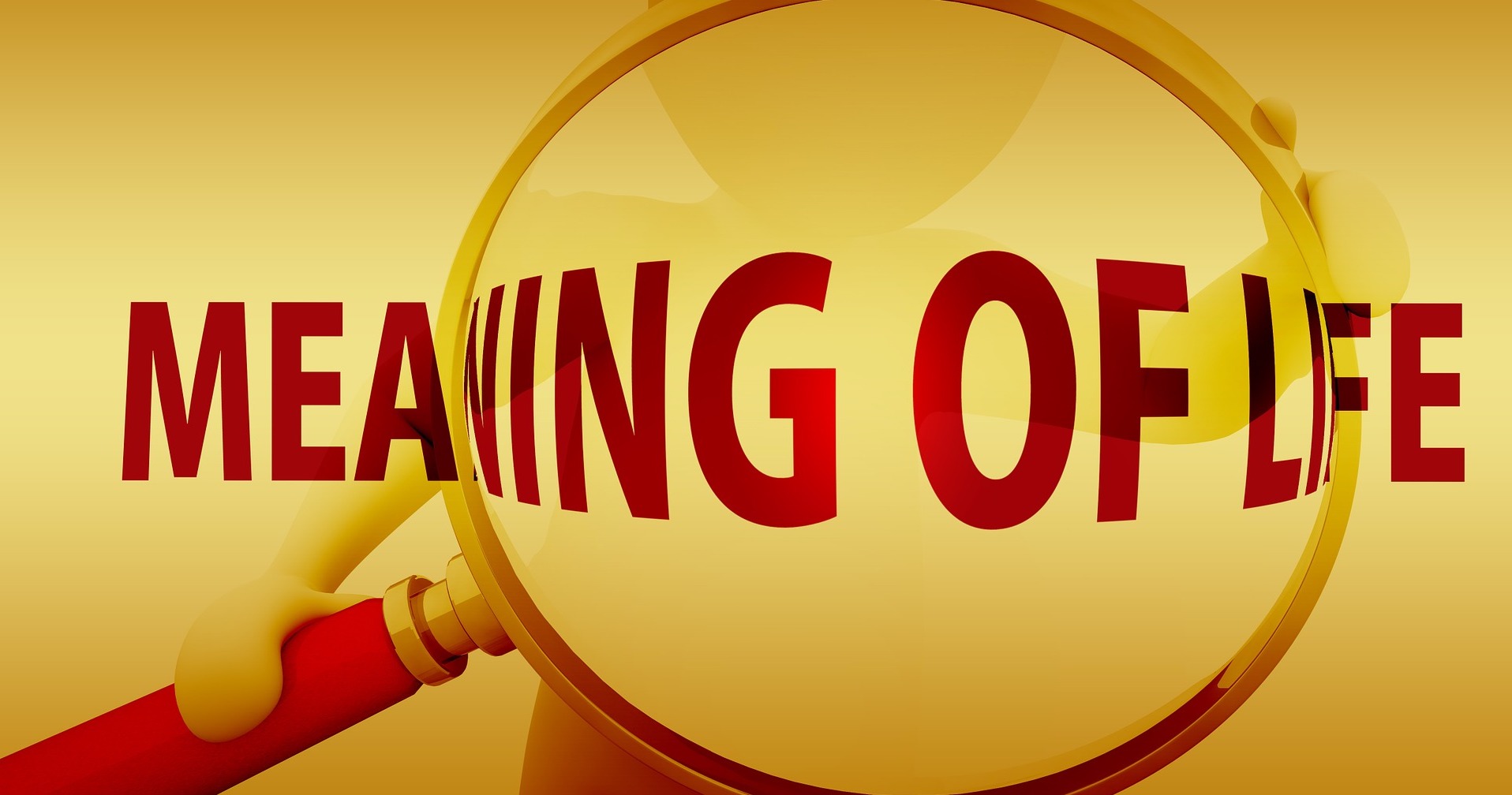I can’t help but think about the 2005 movie, The Hitchhikers Guide to the Galaxy, whenever ‘the meaning of life’ becomes the topic of conversation. Spoiler alert: a super-computer in that film discovers that the meaning of life is “42.” While I’m a fan of the movie for the slap-stick humor, I find its overall message to be rather depressing. Other than realizing his love for a female friend, the main character does not find a better answer for the meaning of life than that random number. This answer seems typical for the post-modern philosophy of today’s age, that life’s purpose is to simply enjoy it at much as you can, perhaps make a difference, and nothing more.
Perhaps current safety measures have you pondering the meaning of life. It is odd that life so abruptly halted, yet the globe keeps on spinning. We all may begin to question why our lives are so busy or why we spend so much time on the activities or projects that we do, if they all can be whisked away in an instant. Even working or going to school can seem frivolous when face-to-face with a potentially life-threatening virus, and we wonder what the point of all of this really is.
Rather than a depressing endeavor, the Church has always viewed death and preparing for it as an essential Christian duty. Many of the great saints often wrote about their longing for death or how the consideration of it helped them with discernment or the pursuit of holiness. St. Teresa of Avila, St. Ignatius of Loyola, and St. Francis of Assisi are some heavy-hitters to look into. The Scriptures, especially the writings of St. Paul, constantly reference death and dying to oneself as the way to uniting oneself to Jesus. One of St. Paul’s greatest writings, Philippians, chapter 2, describes that it was through obedience to God that Jesus died, and in doing so, became exalted and recognized as God.
To Be God or Not to be God
Paul is not trying to be tricky or even morbid here. Rather, he is explaining the greatest mystery of our faith and the ultimate meaning of life. It sounds like a tall order for a short paragraph, but I was not kidding when I said this was one of, if not the greatest of Paul’s writings. And, it is appropriate that God incarnate, Jesus, should show us not only what our purpose is but also how to achieve it.
St. Paul writes, “Though he was in the form of God, Jesus did not count equality with God something to be grasped” (Philippians 2:6). Translations may differ, and so much can be said from this line, but let us focus on two points. First, Jesus is God. This may go without saying, but it is a mystery of our faith that Jesus is both God and human, completely. Recognizing this is important for us because, as humans, we need a human example of how to relate to God. Out of complete humility, Jesus becomes that living example for us.
This brings us to the second point. Jesus does not grasp at equality with God, which means he does not reach for it on his own, even though he is God. Paul gives us this important detail about Jesus because he is showing us how Jesus is undoing the sinful act of original sin. Adam and Eve sought to be like God, but without the help of God, by disobeying him and eating the fruit of the tree of the knowledge of good and evil. The serpent had promised them that eating of its fruit would open their eyes and they would become like gods. Adam and Eve both ate of the fruit—Genesis 3:6 literally said that Eve “took” the fruit—grasping at divinity. By eating the fruit, they disobeyed God, and selfishly sought to be like him without him.
To Love God
What Adam and Eve had failed to realize was that God was keeping nothing from them; in fact, just the opposite was true. God was giving them everything, especially a unique and holy relationship with him, out of his pure goodness. All they had to do to receive this gift was to be obedient and trust him. In a moment, that was lost, and so was humankind’s special relationship with God.
Thankfully, the story does not end here, otherwise we would be no better off than the man in The Hitchhiker’s Guide to the Galaxy. In Phillippians 2, Paul shows that Jesus does just the opposite of Adam of Eve. Jesus does not grasp at equality with God; rather, he humbly obeys God to the point of death on a cross. Through obedience and literally giving his life to God, Jesus is exalted as God. This is not to say that Jesus was not God before his death and resurrection, because he was. It is saying that he became exalted, or recognized and praised as God through his obedient death. Jesus is showing us that if we want to be in relationship with God, then we must obey him and obediently do all that he is asking of us.
Therefore, what we learn from Jesus about the meaning of our lives is that we are meant to be in a relationship with God. We are meant to spend eternity with God, who is love. The only way this can happen is if we spend our earthly lives in humble, obedient trust of the Father, just as Jesus did. The Father is constantly seeking us out, throughout every moment of our lives. He is constantly drawing us into a deeper and deeper relationship with him. Through our rejection of sin and evil, we turn more fully toward him, opening our hearts to his love and life. The meaning of life is to respond to God’s love so that we may live with him in this life and in the next.
To Say Yes to God
Life here on earth can be quite challenging, stressful, or confusing at times. However, it can also be joyful, exciting, and abundant. God desires that through it all, we continually turn to him, trusting in his providence and care. He wants to guide us to find our fulfillment in him. Our yes to God becomes his overwhelming joy and delight.
During this time of social distancing, disrupted routines, and perhaps a slower pace, make time to ponder the meaning of your own life. See how God continually seeks your heart and desires that you draw closer to him. Find fulfillment in life through a relationship with God rather than through productivity, achievement, or success. There is no need to grasp God; rather, realize how much he is already reaching for you.
You May Also Like:
5 Super Important Questions I Ask People Regarding The Meaning of Life [Matt Fradd video]
Finding Meaning in Life, Christmas Presents, and Helping Children Discern their Vocation [Fr. Josh Johnson podcast]
Scripture & Tradition: The Story & the Life
Jesus: The Way, the Truth and the Life [study program]

Caroline Harvey is the associate communication director for the Archdiocese of Milwaukee. Prior to working at the archdiocese, Caroline worked in various ministry positions throughout southeast Wisconsin, focusing on teaching and discipleship. She is currently pursuing a doctor of ministry degree in liturgical catechesis from the Catholic University of America. She has a master of arts degree in biblical theology and a bachelor of arts in communications media from John Paul the Great Catholic University.
Featured image by Gerd Altmann from Pixabay






0 Comments